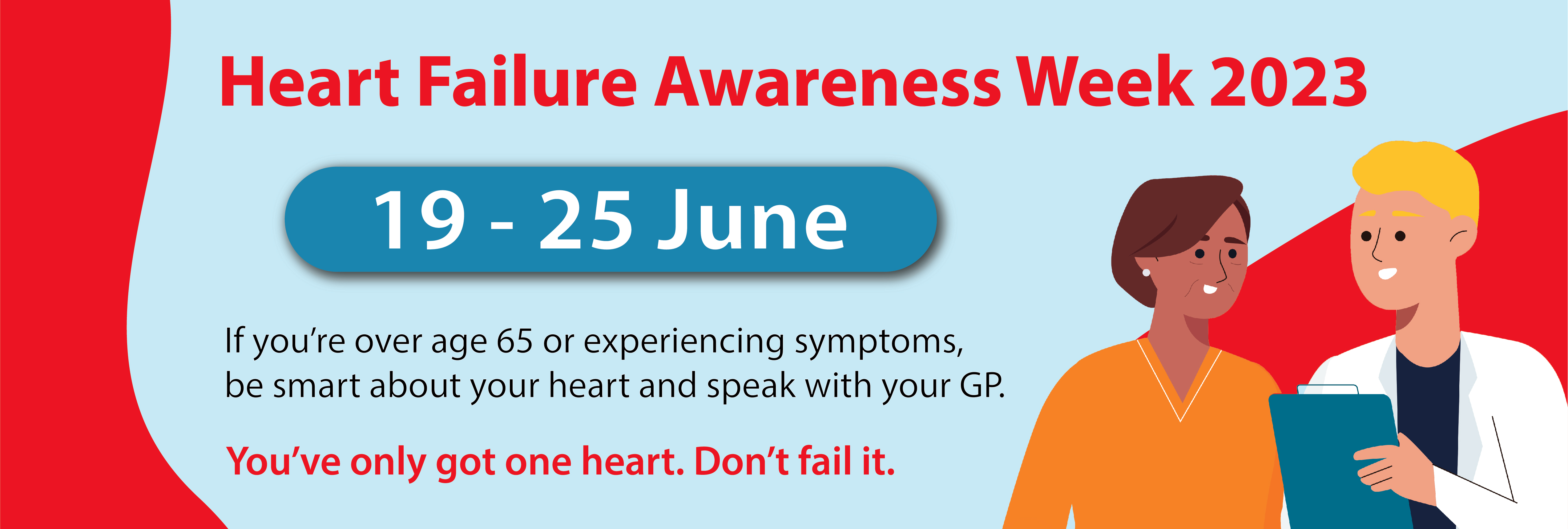Take time out of your busy day and make a Donation to an amazing cause. Shed some light on Heart Awareness

Heart failure is common and on the rise around the world. In Australia, there are more than 500,000 Australians living with heart failure, and as more people survive heart attacks, live longer, and experience heart issues that lead to heart failure, more people will develop the condition.
Every day, heart failure claims the lives of eight Australians and it’s the number one cause of hospitalisation in people over age 65. Australians spend more than one million days in hospital each year due to heart failure, at an estimated annual cost to the Australian health system of $3.1 billion.
Unfortunately, dangerously low levels of awareness about heart failure are leaving Australians vulnerable to this long-term condition.
Heart Failure Awareness Week is a hearts4heart initiative designed to:
The campaign creates an opportunity to encourage crucial conversations about the importance of reform in how heart failure diagnosis, treatment, and long-term management are addressed in Australia.
Heart Failure Awareness Week is a hearts4heart initiative designed to:
The campaign creates an opportunity to encourage crucial conversations about the importance of reform in how heart failure diagnosis, treatment, and long-term management are addressed in Australia.

To provide current and future patients, and carers, with all the information they need to understand heart failure and take a more active role in their health, we’re launching an Australian-first, Understanding Heart Failure: A Practical Guide for All Australians.
The evidence-based, free resource, developed alongside patients and healthcare professionals, will be presented at Parliament House in Canberra during Heart Failure Awareness Week, with the support of Parliamentary Friends of Heart and Stroke Foundations.
There are several reasons your heart may struggle to meet your body’s needs. Common causes of heart failure include coronary heart disease, heart valve disease, and hypertension, which your GP can monitor. Additionally, the risk of heart failure rises with advancing age.
Other factors, such as obesity, diabetes, alcohol abuse, heart arrhythmias, and severe iron deficiency, can also lead to heart failure if not properly managed, so, it’s essential to treat any underlying medical conditions you may have.
Emerging research also suggests that COVID can affect the heart by causing damage to the lining of the blood vessels, increasing a person’s risk of heart failure.
If your concerned you may be at risk of heart failure, speak with your GP about getting your heart checked.
Heart health checks are free for those aged 45 and over, and Aboriginal and/or Torres Strait Islander people aged 30.
In its earliest stages, heart failure may have no symptoms. So, getting a regular heart check is important, especially for people with family members who have a heart condition and those over the age of 65.
However, any of the following changes in your body could be a sign of heart failure:
If you notice any of the above, book an appointment with your GP without delay!
To keep your heart healthy, follow the CARDIO acronym daily by:
Heart heathy habits are important for people with and without heart failure.
For those who have heart failure, the good news is that early treatment and effective management of heart failure can lead to a productive and fulfilling life.
